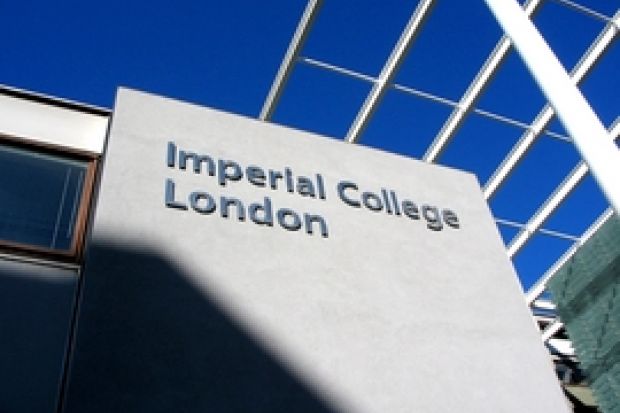Imperial College London is to close two research centres sponsored by Chinese aerospace and defence companies following increased scrutiny of Sino-British academic collaborations.
The world-leading research university confirmed that its Avic Centre for Structural Design and Manufacturing, which has received more than £6 million from the Chinese civilian and military aviation supplier, will shut down by the end of the year after a review, while a second centre run jointly with Biam, a subsidiary of another state-owned aerospace and defence company, would also close.
In the latter case, Biam had contributed £4.5 million for projects on high-performance batteries, jet engine components and impact-resistant aircraft windshields, according to The Guardian, which first reported the closures.
The decision to shutter the two centres follows the “rejection of two licence applications to the government’s Export Control Joint Unit, which oversees the sharing of sensitive research with international partners”, the newspaper said.
Imperial’s closure of the two research centres comes amid growing concerns that UK universities may be inadvertently furthering the interests of the Chinese military. Last year a report by the Civitas thinktank found that 20 UK universities had dealings with 29 Chinese universities and nine companies with military links, with research into hypersonic technology that could be used in undetectable missiles flagged as a major worry.
As that report was published in February 2021, HM Revenues and Customs was on the verge of informing as many as 200 academics that they were being investigated for a potential breach of export controls by sharing sensitive data with China, The Times reported.
Five further research collaborations have also been terminated in the past three years, including facilities at Imperial and Manchester co-funded by the Chinese missile manufacturer Calt, whose parent company is reported to have supplied drones deployed in the Xinjiang region, the Guardian also said.
Confirming the closure of the two latest research centres, an Imperial College London spokesperson said that “all [of its] partnerships and collaborations undergo thorough scrutiny and are regularly reviewed, working closely and regularly with the appropriate government departments, and in line with our commitments to UK national security”.
Imperial added that its “research is open and routinely published in leading international journals and we conduct no classified research”.




